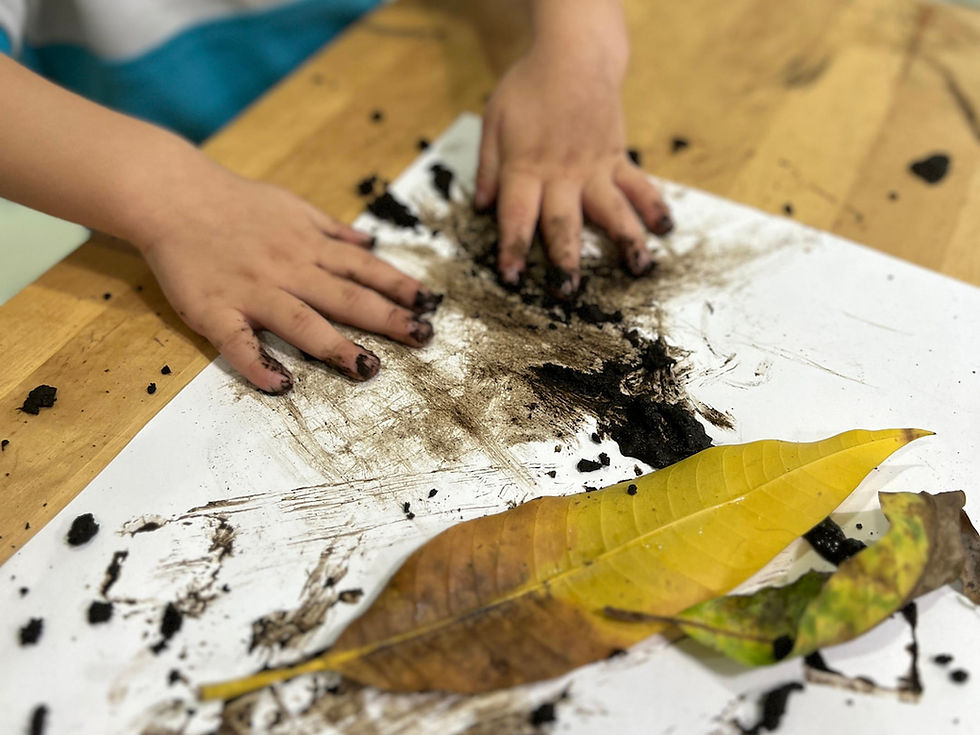Doing Everything for Your Children vs. Involving Them in Household Chores: What Is Better for Their Development?
- Marianela de Sousa
- Sep 3, 2024
- 4 min read

Currently, many parents find themselves at a crossroads: wanting to do everything for their children to make life easier for them, while also teaching them the importance of taking on responsibilities from a young age. The choice between doing everything for them or involving them in household chores is more than just a simple everyday decision; it is a key strategy in their overall development. Here, we explore the benefits of involving children in household tasks from an early age and why this practice can be so valuable for their growth.
Doing Everything for Your Children: A Convenience That Limits?
Doing everything for your children may seem, at first glance, like an act of love and protection. We want them to have time to play, learn, and rest, but this attitude can become a trap that limits their autonomy and their ability to face challenges. By meeting all their needs, we send them the message that they are not capable of doing it themselves, depriving them of valuable opportunities for growth. This not only affects their self-esteem but can also have a negative impact on their emotional and social development.
Disadvantages of Overprotection: By not allowing them to participate in household chores, we deprive them of opportunities to learn practical skills and solve problems. This can lead children to become dependent and lack confidence in their abilities.
Lack of Preparation for Adult Life: Without experiences of responsibility from an early age, children may reach adulthood without knowing how to handle basic aspects of everyday life, such as cooking, cleaning, or managing their time and money.
Benefits of Involving Children in Household Tasks
Development of Self-Discipline
Performing regular tasks helps children establish routines and understand the importance of completing what they start. This practice reinforces self-discipline, which is essential for their future academic and professional success.
Higher Self-Esteem and Confidence
When children participate in household tasks, they feel valued and recognized as important members of the family. This active participation contributes to improving their self-esteem, as they feel proud of their achievements and develop a "I can" mindset.
Promotion of Teamwork and Cooperation
By collaborating on tasks such as preparing a family meal or cleaning up after dinner, children learn to work as a team and cooperate. They understand that everyone in the family has responsibilities and that working together makes tasks more manageable and quicker.
Learning Practical Skills and Problem-Solving
Household chores are a perfect laboratory for learning practical skills such as cooking, organizing, and maintaining cleanliness. They also face situations that require problem-solving, such as what to do if something spills or how to manage time to complete multiple tasks.
Appreciation of Effort and Development of Gratitude
By participating in chores, children begin to understand the effort required to keep a home clean and tidy. This can foster a greater appreciation for what parents and other family members do, promoting attitudes of gratitude and respect.

Examples of Household Chores by Age and How They Benefit Children
Children aged 2 to 3 years: They can help pick up their toys, take dirty diapers to the trash, place napkins on the table, and fold socks or small items. These activities develop hand-eye coordination and reinforce a sense of belonging by actively participating in household tasks.
Children aged 4 to 5 years: They can help sort dirty laundry, make their beds simply, water plants, feed pets following instructions, dust furniture, and prepare cereal. These tasks teach them step sequences and encourage concentration, patience, and responsibility.
Children aged 5 years: They can make sandwiches, pour their drinks, and participate in more complex activities like setting the table for a family meal. These activities reinforce their autonomy, fine motor skills, and help them feel they contribute significantly to the household's well-being.
Children aged 6 to 7 years: They can help sweep, fold simple clothing, and prepare their own snacks. These activities foster independence, motor coordination, and the development of organizational skills.
Children aged 8 to 10 years: They are ready for tasks such as washing dishes, helping cook under supervision, and cleaning surfaces. Here, children begin to learn more complex skills that will be useful for life, while also improving their sense of responsibility and autonomy.
How to Motivate Children to Participate in Household Chores
Make it Fun: Turn chores into games or challenges. For example, challenge them to see who can put away toys the fastest or count how many socks they can match correctly.
Give Them Options: Allow them to choose which task they want to do, giving them a sense of control and commitment.
Use Positive Reinforcement: Praise their effort and the results, and offer small rewards like extra playtime or choosing a family activity.
Model the Behavior: Children imitate what they see. If they see adults doing chores with a positive attitude, they are more likely to want to participate as well.
Accompany with Patience: Teach them with patience, showing each step and accompanying them until they know how to do it themselves. Remember, it's not about the quality of the result, but about the importance of the experience.
Conclusion
Involving children in household tasks not only teaches them practical skills but also promotes their emotional, social, and cognitive development. At ABCnMe Early Learning Center, we know how important this learning is. That's why all our classrooms include a practical life area where children play at doing household chores: they iron, feed their babies, dress up in different characters, organize their wardrobes, cook, and even organize banquets for their peers. This playful and educational experience allows them to develop essential skills in a safe and enriching environment, preparing them for a future of independence and success.






Comments